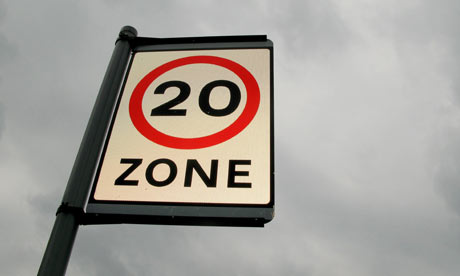 |
| Peter Black's Member's Bill on park homes aims to tighten regulations and prevent site operators from abusing their power. (Pic : BBC Wales) |
Although Darren
Millar's (Con, Clwyd West), widely-derided, Chewing Gum Levy Bill
wasn't approved by AMs a few weeks ago, Peter Black's (Lib Dem, South
Wales West) Member's Bill was accepted, becoming the first Member's
Bill introduced to the Senedd since the 2011 referendum.
Now it's time to take a look at the proposals in more detail.
The problem
Some 3,400 households in Wales are counted as (permanent) "residential mobile homes". The definition of a "mobile home" usually extends to fixed caravans, but includes holiday caravans. Most of the people living in these will be elderly and subsequently living on a reduced, fixed income.
Several incidents and scandals involving mobile home parks have led to campaigns to improve the regulation and licensing of these parks. The licencing scheme is said to be "outdated", while many park owners have have criminal prosecutions brought against them.
One issue surrounds the sale of mobile homes – in particular buying mobile homes at a greatly reduced price, then selling them for market value.
In the consultation Peter Black carried out before laying the Bill in front of the Assembly, home owners were said to be greatly in favour of reforms, while site operators/owners were hostile towards it. I think that says it all.
What does the Bill aim to do, specifically?
Licencing & management of regulated sites
Now it's time to take a look at the proposals in more detail.
The problem
Some 3,400 households in Wales are counted as (permanent) "residential mobile homes". The definition of a "mobile home" usually extends to fixed caravans, but includes holiday caravans. Most of the people living in these will be elderly and subsequently living on a reduced, fixed income.
Several incidents and scandals involving mobile home parks have led to campaigns to improve the regulation and licensing of these parks. The licencing scheme is said to be "outdated", while many park owners have have criminal prosecutions brought against them.
One issue surrounds the sale of mobile homes – in particular buying mobile homes at a greatly reduced price, then selling them for market value.
In the consultation Peter Black carried out before laying the Bill in front of the Assembly, home owners were said to be greatly in favour of reforms, while site operators/owners were hostile towards it. I think that says it all.
What does the Bill aim to do, specifically?
Licencing & management of regulated sites
- The Welsh Government will regulate how applications for licences are made - and the price.
- The proposed manager of a regulated site will need to pass a "fit and proper persons test", and either be the person in control of a site, or an employee of someone with control of a site.
- Licences last for up to 4-5 years, and will be renewable after that, with temporary extensions of up to 3 months available.
- Licences can be revoked when a person breaches the condition of a licence, is no longer considered a "fit and proper person", or would be unlikely to be granted a licence were it up for renewal.
- Licence holders will have a right to appeal.
- The Welsh Government will be able to set codes of practice, and have the power to ensure there are proper management practices in place.
- "Site rules" need to be submitted with licence applications. Changes to these site rules need to be consulted with residents.
Licencing authorities
- Local authorities will become the "site licencing agencies" for mobile home sites, with the possibility of collaboration with other authorities.
- Licencing authorities will be given the power of entry for matters related to licencing.
- Licencing authorities will decide how many mobile homes can be put on a site.
- Local authorities will need to keep a register of regulated site licences.
Offences
- Failing to obtain a licence when it's a requirement
- Stationing too many homes on a regulated site than permitted by a licence
- Failure to, or preventing someone from, complying with licencing conditions
- Preventing an authorised person entering the site (power of entry)
- Operating unlicensed regulated sites.
Offenders can be punished by up to £5,000 fine in a Magistrate's Court, or an unlimited fine in a Crown Court case. For blocking the power of entry, it's a fine of up to £2,500. Site owners who sell mobile homes or collect pitch fees on unlicensed sites can be ordered to repay any pitch fees or costs incurred. In some cases, a fixed penalty notice may be given.
Sale and purchase of mobile homes
Site operators rent a pitch, but the owner of the mobile home owns the home.
If mobile home owners want to sell their home, they need to seek site owner approval of the new purchaser. Some site operators have "blocked" sales this way, and it's been one of the primary complaints leading to this Bill. Site owners are also entitled to a commission on sales – up to 10% of sale price. It's said that pitch fees would rise by 22% if the commission were removed – so it stays.
However, in this Bill:
- New owners will no longer need to be approved by the site operator
- BUT sales/transfers of pitch agreements cannot go ahead until the site operator receives their commission.
Other
- Joint-owned mobile homes can be taken over by a person for which it's their primary residence.
- Site owners cannot pass on any costs relating to this Bill via pitch fees.
- Home owners will be able to make any external or internal modifications to their home, as long as the modifications don't breach any terms of agreement. Permission by site owners cannot be "unreasonably withheld".
- Unless there's agreement between home owners and site operators, a mobile home cannot be moved without a Residential Property Tribunal unless it's "urgent" (i.e landslip).
Effects of the Bill
The benefits are said to include:
- A simplified legal process, and making licencing easier to monitor.
- Result in actual savings for local authorities in enforcing licences in the long-term.
- Improve standards at sites (obvious).
- Elderly residents being coerced out of their mobile home should be reduced.
- Residents won't be faced with picking up the costs for the new scheme via increased pitch fees.
Some of the potential pitfalls are said to be:
- Banks might be unlikely to led to sites where there's a fixed-term pitch.
- The extra costs placed on park owners, hitting profitability.
It's said that the financial costs of the Bill are "dependant on how and when the powers are implemented." The initial cost of setting up the scheme, at all levels of government and the site owners, is estimated to be £463,000 – including a one-off £270,000 bill for the Welsh Government. The scheme should cost around £83,000 per year to run after that, with most of that falling on the licencing authorities (local councils).





















